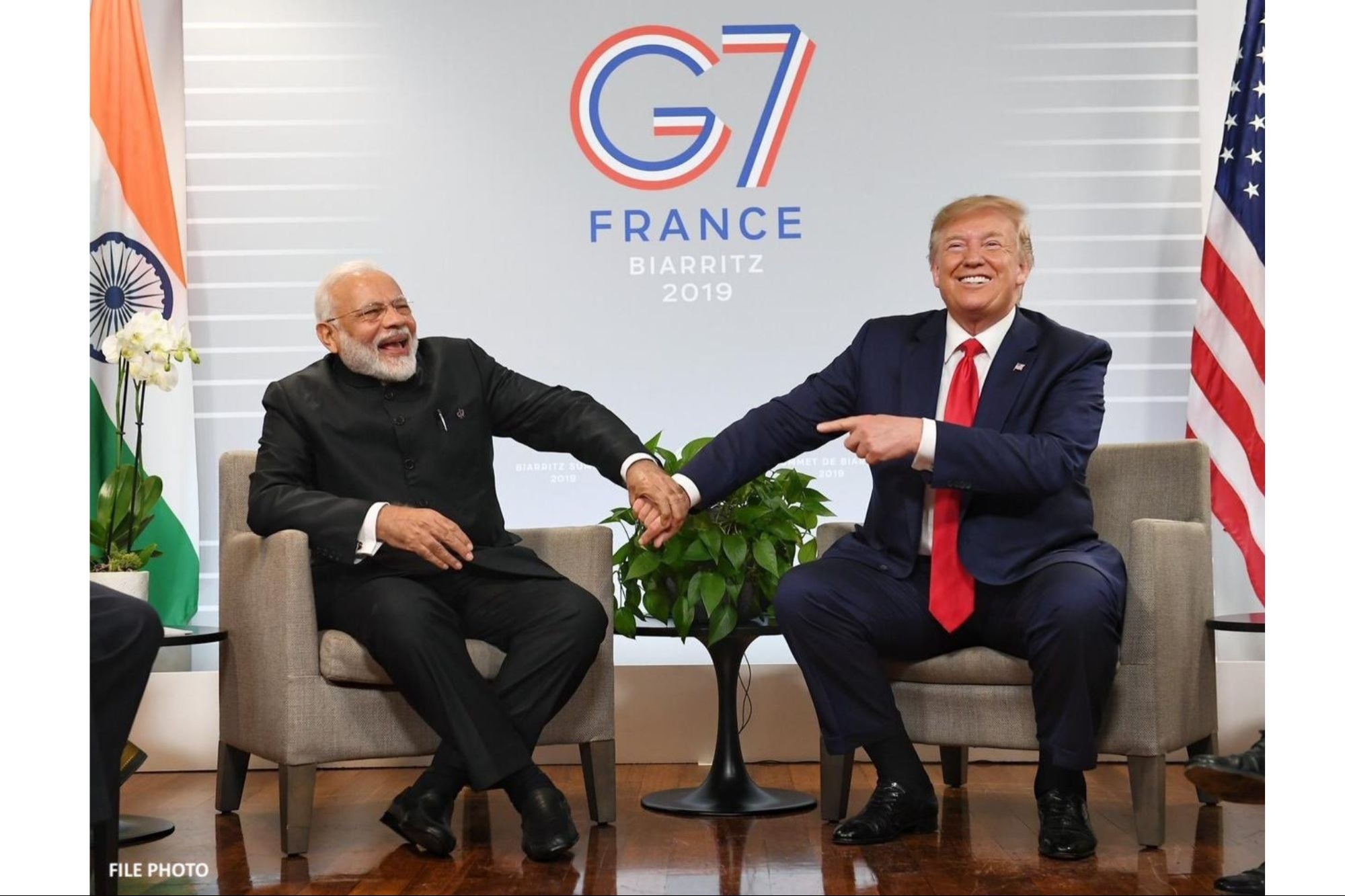What Trump's Win Means for India As Donald Trump is elected as the 47th President of the United States, India-Us trade ties, H-1B visas and military alliances are key areas to look into
You're reading Entrepreneur India, an international franchise of Entrepreneur Media.

Donald Trump is back! From causing violent insurrection in the U.S. Capitol, having felony charges against him and surviving two assassination attempts; nothing could impede Trump's victory to be elected as the 47th President of the United States. While diplomatic ties between the two countries have seen significant improvement in the past few years, the Modi-Trump relationship has been particularly noteworthy. In 2019, Modi visited the grand "Howdy Modi' event in Houston to much fanfare and praise from the Indian community when Trump was the President.
Prime Minister Narendra Modi on Wednesday congratulated Donald Trump for his historic election victory, and said he looks forward to collaborating with the soon-to-be US president. "Heartiest congratulations my friend @realDonaldTrump on your historic election victory. As you build on the successes of your previous term, I look forward to renewing our collaboration to further strengthen the India-US Comprehensive Global and Strategic Partnership. Together, let's work for the betterment of our people and to promote global peace, stability and prosperity," Modi wrote on social media platform X, formerly Twitter.
External Affairs Minister S Jaishankar said that the India-US relationship is a train on steady tracks, no matter who takes the White House. In a joint press briefing with Australian counterpart Penny Wong, Jaishankar confidently stated that the India-US bond has not only survived but thrived through five different presidencies. "Our relationship with the United States will only grow, regardless of the election outcome," he said yesterday.
India-US Trade
India-US trade ties are likely to be impacted as Trump becomes President. In Trump's previous term, during (2018-19), India's exports to the US was $52.4 billion, while imports amounted to $35.5 billion. "Since I took office, U.S. exports to India are up nearly 60 percent and exports of high-quality American energy have grown by...500 per cent," said Trump earlier.
Currently, the most important element of Trump's Presidency plan is to make America extraordinarily wealthy again. "It's a word that's very important in my plan because we generally don't charge tariffs. I started that process, it was so great, with the vans and the small trucks, etc. We really don't charge. China will charge us a 200 per cent tariff. Brazil is a big charger. The biggest charger of all is India. India is a very big charger. We have a great relationship with India. I did. And especially the leader, Modi. He's a great leader. Great man. He's done a great job. But they probably charge as much," he said in a podcast.
A report by market research firm Nomura analyses that Trump will be favourable for India despite his tough stance on trade and dollar.
Commenting on bilateral trade on his previous visit to India, Trump had said that it was one of the major focus areas during his discussions with Modi that economic relationships are fair and reciprocal. "Our teams have made tremendous progress on a comprehensive trade agreement and I'm optimistic we can reach a deal that will be of great importance to both countries," he had said.
On Immigration
In his victory speech earlier today, Trump said that immigrants are welcome but they have to come in legally. This time as well, Trump plans to tighten immigration rules and reduce H-1B visas, a report by Prabhudas Lilladher stated.
Trump's stance on immigration, especially the H-1B visa program, has historically impacted Indian professionals. The H-1B visa is a non-immigrant visa that allows US companies to employ foreign workers in speciality occupations. The norms surrounding H-1B visas are significant for India as Indians make up a large proportion of the recipients of the visa and other work visas granted to skilled foreign workers.
His first administration attempted to increase wage requirements for foreign workers and impose additional restrictions, which created challenges for Indian IT professionals and technology firms. These measures, if reintroduced, could affect the Indian talent pool in the US and influence tech firms that rely on skilled Indian workers.
Military Alliance
Defence and military collaboration have been cornerstones of India-US relations in recent years. Trump's last term also saw the elevation of the Quad - an alliance between the US, India, Japan, and Australia aimed at counterbalancing China. A renewed Trump administration could see further defence cooperation, with continued arms sales, technology transfers, and joint military exercises.
Trump's earlier visit to India led to a $3 billion deal to supply advanced military equipment including Apache and MH-60 helicopters. "These deals will enhance our joint defense capabilities as our militaries continue to train and operate side-by-side," Trump had said in a joint statement, earlier during his visit to India.
The Initiative on Critical and Emerging Technology (iCET) and defence deals such as the GE-HAL agreement for manufacturing jet engines have been some of the highlights of India-US relations under Joe Biden's administration. Trump's stance toward NATO suggests he might adopt a similarly cautious approach toward military pacts, though India-US military cooperation may continue due to the shared goal of countering China's influence in the Indo-Pacific region.










